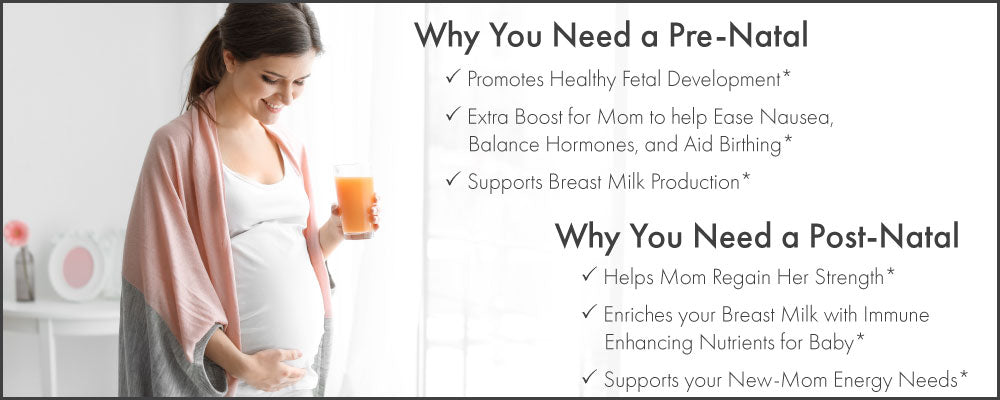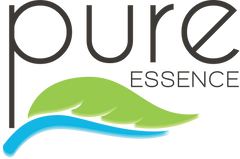Congratulations! In a few months, you’ll be welcoming a new family member. This is a special time when your health is particularly important.
As you probably already know, being with child requires some variations to your daily nutrition. There are certain nutrients and vitamins that are essential for a healthy pregnancy. What are they and what should you keep in mind for your baby’s well-being?
We’ll answer this and more in this article. Let’s begin with a few basic reminders.
Reminders During Pregnancy
Before we list the vitamins and nutrients that are essential for you and your baby, here are some things to keep in mind:
Weight Matters
There are many reasons for maintaining physical health prior to pregnancy and during pregnancy. The most important one is it helps ensure your health and the health of your baby. The more you weigh, the less weight gain you should have while pregnant.
Those who are obese with body mass indexes (BMIs) that are 30 or higher should only gain 11 to 20 pounds. On the other hand, women with normal BMI (between 18.5 to 24.9) can gain between 25 to 35 pounds. For the full list, refer to the Centers for Disease Control’s (CDC) recommendations.
Appropriate Amount of Calories
The idea that they’re eating for two has led many pregnant women to overeat. In truth, pregnant women only need an additional 300 calories each day.
It’s important to make sure that you’re eating healthy and nutritious food during this time. Eat veggies and healthy proteins while also ensuring that you’re getting enough water. The protein will be used to support your baby’s growth while fueling your own bodily functions. It becomes even more important during your last two trimesters.
7 Essential Nutrients for Healthy Pregnancy
OB-GYNs almost always recommend dietary supplements during pregnancy to supply or boost the following essential nutrients:
1. Folate
Also known as Vitamin B9, folate is important in red blood cell formation and growth. It is an essential nutrient during early pregnancy for promoting the healthy growth and development of the baby while preventing birth defects of the brain and spine. The best form of folate is MTHF, or Methyltetrahydrofolate. Perhaps the best of this group is called Quatrefolic.

2. Vitamin D3
Vitamin D3 supports bone development through the absorption of calcium. The vitamin also supports the immune system and helps regulate blood sugar levels. The ideal dose for pregnant women is 600 IU (international units) per day. The best Vitamin D3 is a whole food extract from Lichen.
3. Iron
Prenatal vitamins with iron are another crucial supplement for pregnant women. Mothers-to-be need 27 milligrams of iron every day because they are at risk for iron deficiency anemia. This is a condition where you don’t have enough red blood cells to transport oxygen to the body’s tissues.
Up to 52% of women around the globe experience iron deficiency anemia during pregnancy. Its symptoms include:
- Dizziness/lightheadedness
- Fatigue
- Headache
- Shortness of breath
- Pale/yellowish skin
- Weakness
4. Calcium
Calcium is a mineral that supports the development of the baby’s bones, teeth, heart, muscles, and nerves. During pregnancy, an expectant mother needs 1,000 milligrams of calcium each day. If a woman is deficient in calcium during pregnancy, her body takes it from her bones to give to her baby. This can cause health conditions, like osteoporosis, later in life.
5. DHA

Docosahexaenoic acid (DHA) is a kind of fat that helps build healthy bodies. During pregnancy, it specifically helps promote baby’s brain and eye health. It may also help support the mother’s mental health and mood during pregnancy. Recommendations are for pregnant women to eat 8 to 12 ounces of seafood low in mercury each week. It is also wise to use a high quality Omega 3 supplement.
6. Phytochemicals
Phytochemicals are chemicals in plants that protect against bacteria, fungi, and viruses. When humans consume fruits and vegetables with phytochemicals, they decrease the risk of developing certain types of cancer, hypertension, heart disease, and diabetes. These diseases are dangerous for pregnant women as they may complicate childbirth. There are also cases when babies develop birth defects because of the mother’s ailments during pregnancy.
Taking one-a-day prenatal vitamins, like One ‘n’ Only™ PreNatal, along with fruits and vegetables will help you have a higher level of phytochemicals in your diet. One ‘n’ Only™ Prenatal is a once-daily prenatal multivitamin that helps promote healthy fetal development and is packed with phytochemicals.*
7. Gingerol
Gingerol is a chemical compound found in ginger. It is important in gut health and pregnancy because it helps improve digestion and may help reduce morning sickness. Up to 70% of pregnant women experience this morning discomfort.
Holistic Prenatal Nutrition
Taking several different supplements may not be ideal for pregnant women, especially those who are experiencing morning sickness and nausea. It’s not so much the supplements but the process of taking multiple tablets or capsules each day.
Instead, what pregnant women can do is find holistic prenatal nutrition in the form of a holistic multivitamin that contains all the necessary nutrients needed for the mother and child during pregnancy.

Postnatal Nutrition
Keeping up with postnatal nutrition is just as important as it is when you are pregnant. Taking a postnatal multivitamin, like Mother & Child™, helps the new mother to recover from the rigors of childbirth and supports her energy needs during early motherhood.*
Not only does Mother & Child™ help in those areas, but it also contains nutrients like L-taurine and colostrum to enrich breast milk. L-taurine is an amino acid that is extremely important to the development of the child’s brain, central nervous system, and vision. Meanwhile, colostrum helps deliver dynamic, immune-enhancing properties to the child.*
Bottom Line
Motherhood must be a holistic process of living a healthy and nutrient-rich lifestyle. It starts before a woman is even pregnant as the intake of healthy food and supplements bolsters fertility. During pregnancy, the mother’s nutrition must support another human being including her own. Finally, healthy living continues after birth as the mother needs nutrients to recover while the baby needs them for development.
In many cases, modern foods don’t provide enough nutrients to support the needs of the mother and baby. That’s why a wholefood multivitamin is a good idea. Pure Essence pre- and postnatal multivitamins contain the top nutrients that boost the health of both mother and child.*
